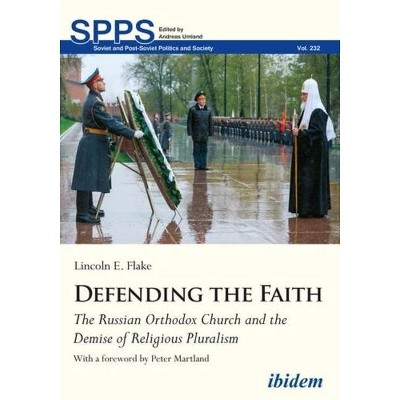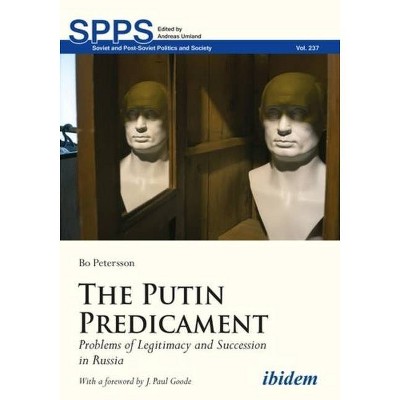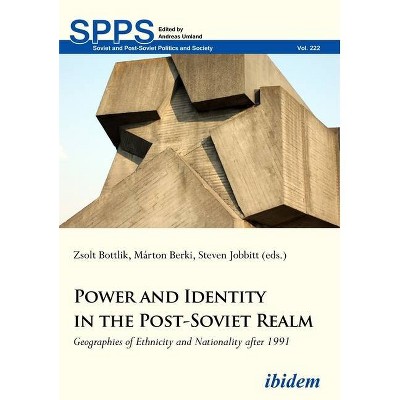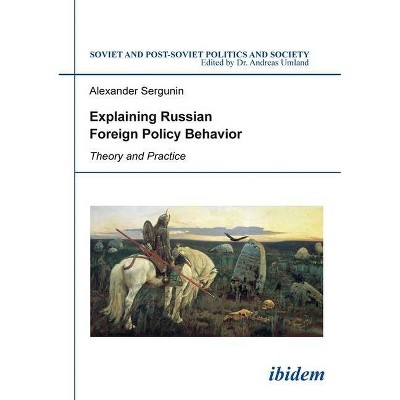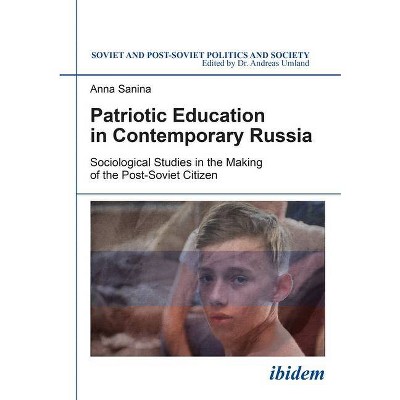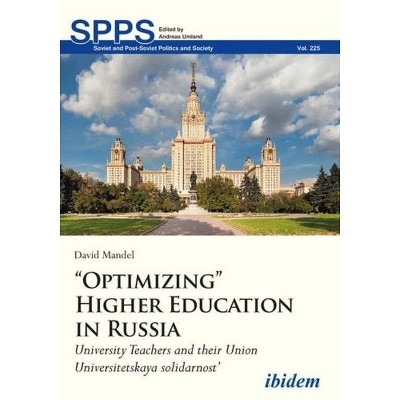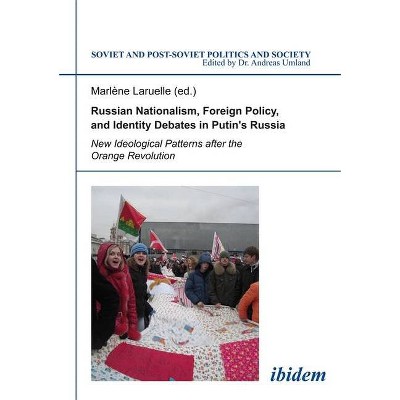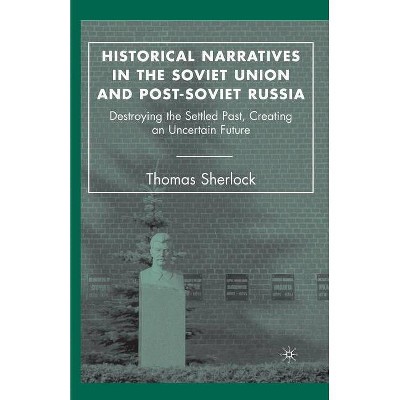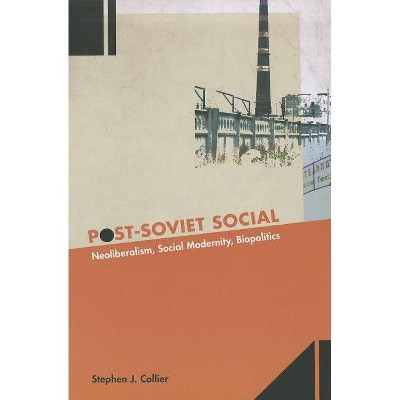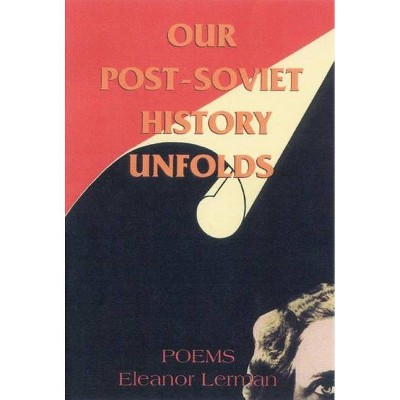International Law and the Post-Soviet Space I - (Soviet and Post-Soviet Politics and Society) by Thomas D Grant (Hardcover)
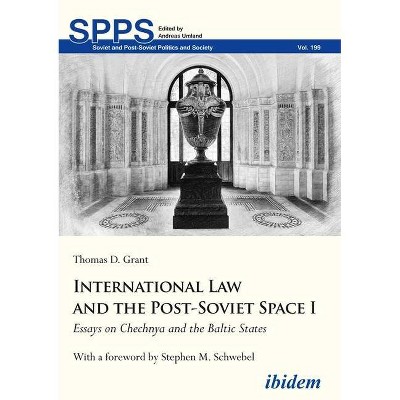
Similar Products
Products of same category from the store
AllProduct info
<p/><br></br><p><b> Book Synopsis </b></p></br></br>The regions that once comprised the Soviet Union have been the scene of crises with serious implications for international law. Some of these, like the separatist conflict in Chechnya, date to the time of the dissolution of the USSR. Others, like Russia's forcible annexation of Crimea and intervention in Ukraine's Donbas, erupted years later. The seizure of Estonia, Latvia, and Lithuania, which took place long before, would trouble Soviet-western relations for the Cold War's duration and gained new relevance when the Baltic States reemerged in the 1990s. The fate of Ukraine notwithstanding, the Budapest Memorandum of 1994 complicates future efforts at nuclear nonproliferation. Legal proceedings in connection with events in the post-Soviet space brought before the International Court of Justice and under investment treaties or the UN Convention on the Law of the Sea may be steps toward the resolution of recent crises--or tests of the resiliency of modern international law.<p/><br></br><p><b> Review Quotes </b></p></br></br><br>Any international practitioner dealing with Eastern Europe today appreciates that the legal future of the region is shaped by its Soviet past. With Dr Grant's invaluable collection of insights in hand, key elements of that landscape are revealed across different times and places.--Emmanuel Gaillard, Global Head of Disputes Group and Head of International Arbitration Practice, Shearman & Sterling LLP<br><br>A] timely and important contribution . . . on burning international law issues in the ex-USSR territory . . . Grant's work shows that rules of international law offer a frame for the examination of the many problems, sometimes they may suggest the possible solutions, and certainly they keep the disputes alive.--Judge Ineta Ziemele, President of the Constitutional Court of Latvia<br><br>Dr Grant's two-volume edition does a great service in clarifying the rules of international law at stake, demonstrating how Russia has violated them, and drawing lessons for an international community that seeks adherence to the rule of law.--Amb. Kurt Volker, Executive Director, McCain Institute for International Leadership, Arizona State University<br><br>Grant is one of the best and keenest legal observers of the post-Soviet space in the West.--Lauri Mälksoo, professor of international law at the University of Tartu and the author of <i>Russian Approaches to International Law</i><br><br>The post-Soviet space is where assumptions about . . . the emergence of an international rules-based order are being tested and assessed. These volumes, collecting in one place works of Thomas Grant [relating] to questions such as self-determination and territorial integrity, provide an important look at how the decades following the collapse of the USSR . . . will shape the international environment of the mid-twenty-first century.--Nikolas Gvosdev, senior fellow, Carnegie Council for Ethics in International Affairs<br><br>Thomas D. Grant's impressive <i>International Law in the Post-Soviet Space</i> provides by far the most exhaustive discussion of the most important international legal problems that arose from the dramatic days of the collapse of the USSR. Chechnya, Ukraine, the Baltic States, the actions taken and the legal positions expressed by Russia at home and in its neighboring areas are treated here in detail, highlighting their significance also for the further development of international law. This is an intelligent, carefully and realistically crafted discussion that is full of factual detail and exposés of the positions of the protagonists in disputes many of which continue to the present day. International lawyers ought to be immensely grateful for the wealth of materials and arguments they will receive from this welcome work.--Martti Koskenniemi, Professor of International Law, University of Helsinki and author of <i>Russian Approaches to International Law</i><br><p/><br></br><p><b> About the Author </b></p></br></br>Thomas D. Grant studied history and law at Harvard, Yale, and Cambridge. He has been an academic visitor at Heidelberg and Stanford and was a junior research fellow at Oxford. Since 2002, Grant has been a fellow of the Lauterpacht Centre for International Law and Wolfson College, University of Cambridge. He is the author of, among other books, <i>Aggression against Ukraine</i> (2015). Grant has published in a range of academic journals, including the <i>American Journal of International Law, German Yearbook of International Law</i>, and <i>Polish Yearbook of International Law</i>; is a contributing author of the <i>Max-Planck Encyclopedia of Public International Law</i>, and a founding editor of the <i>Journal of International Dispute Settlement</i>. He is the editor for recognition of states and state succession, among other topics, in the forthcoming tenth edition of <i>Oppenheim's International Law</i>. He acts as counsel, expert, and advisor before the International Court of Justice, investment tribunals, and national courts. <p/> Stephen M. Schwebel was, from 1997 to 2000, the president of the International Court of Justice at The Hague.
Price History
Price Archive shows prices from various stores, lets you see history and find the cheapest. There is no actual sale on the website. For all support, inquiry and suggestion messagescommunication@pricearchive.us
